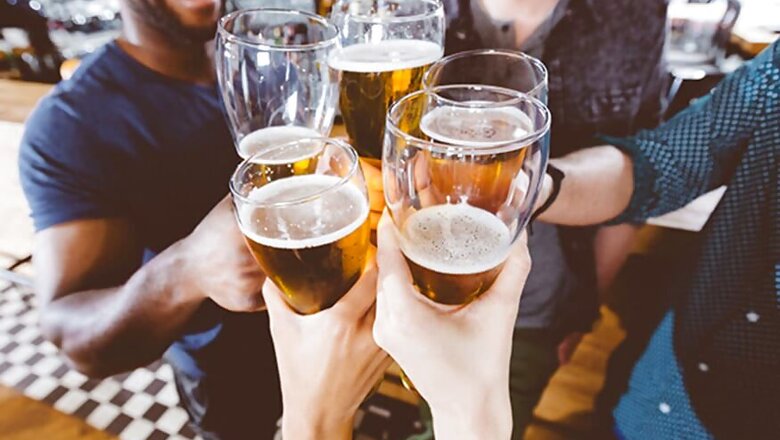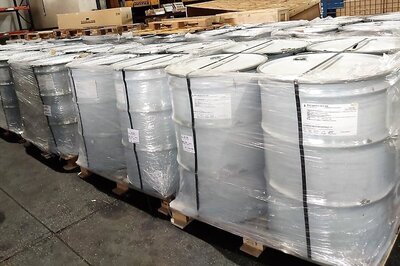
views
 A word of caution: You will henceforth be disappointed with what passes off in the name of your favourite drink in this country.
A word of caution: You will henceforth be disappointed with what passes off in the name of your favourite drink in this country.
There is more than just a subtle difference. But before you tighten your belts and go against the multinational companies for selling inferior stuff in third world countries, pause for a while and think.
Could it be something from our home that spoils the drink?
Look around, we are not alone in griping.
People who drink Guinness beer in London swear by the mug. So how is it that this average drink on their table becomes twice so yummy once they cross the ocean and reach Dublin, the birthplace of the celebrated beer.
So the same drink changes its nature and taste as we move from place to place. Like the formation inside a kaleidoscope that changes with every twist.
People guzzle down drinks and extol the breed of grapes, malt, terroir, hops and everything else they can attribute the taste to. They praise the skill of the master distiller, the fine judgments of the nit-picking tasters who might have helped fine-tuning the drink, the oak in which the alcohol was kept to meditate and ferment, and the seasons it went through as a recluse.
But one thing that escapes them, slipping through their fingers, eluding their tastebuds and into the oblivion — water.
Take the case of beer.
Beer is mostly made of water. The insiders know that its quality and mineral content affect the brew.
Coming to science, water is a symphony of six salt components – bicarbonates, sodium, chloride, calcium, magnesium, and sulphate and the harmony between these ingredients are susceptible to easy harm.
For instance, too much sulphate brings bitterness to the water and the beer.
That is exactly why some breweries are so particular about the kind of water they use in their beer. They brag about it at the end.
The ‘Coors of Colarado’ in the US has built its reputation around an exotic water source – Mountains. Tell me, how many others can boast that the water they use trickles down right from the snow-capped Rocky Mountains? Coors rubs it hard on its competitors by displaying the picture of the waterfall and the mountains on the bottle as well as its cap.
Coors is not alone in using such unusual water sources.
Take Rodenbach of Belgium. The water springs up from the underground springs and feeds an ornamental lake in West Flanders brewery. Next you see it in a glass of beer of Rodenbach.
Now reach Malta by air.
You can see a large rooftop reservoir on top of one of the breweries to catch even the tiniest drop of rain water for the brewery.
How can you knock back mugs and mugs of such beers insensitive to the fine sources of water that nourishes it!
Close your eyes and slosh the beer in your mouth and savour the molecules. There is a way to ease the water out of the tangle of beer which has malt, hops, yeast and gas as well. You have to wait and imagine with the beer still in your mouth. A moment of euphoria washes over you when the tip of your tongue touches the icy pinnacle of the Rocky Mountains, the roof of your mouth gets the twang of the buttermilk sky while the back of your tongue reclaims the aftertaste of the soil.
You have touched the water.
Good water can assume fairy-tale attributes.
For example, it is widely believed that it is River Luffy that runs through Dublin, which makes a hell of a difference between Ireland Guinness and London Guinness. Since 1868, the company at Dublin was using the Grand Canal which flows from St. James Well in County Kildare for the brewery.
But the channel went almost dry when the Dublin Corporation in 1775 decided to snip the pipes to Guinness beer.
The decision would spell doom for the famous beer company. But Arthur Guinness, founder of Guinness brewery business knew what his next step should be. He seized a pickaxe from a workman and dared the authorities to continue but “over my dead body”.
The corporation backed off.
(Had it been our country, our media and the self-proclaimed moral police would have made mincemeat out of poor Guinness for his selfish interests).
But Dublin knows what sells it ultimately.
Water...Er...with some malt, hops and yeast cells thrown in and brewed.
(Manu Remakant is a freelance writer who also runs a video blog - A Cup of Kavitha - introducing world poetry to Malayalees. Views expressed here are personal)
















Comments
0 comment